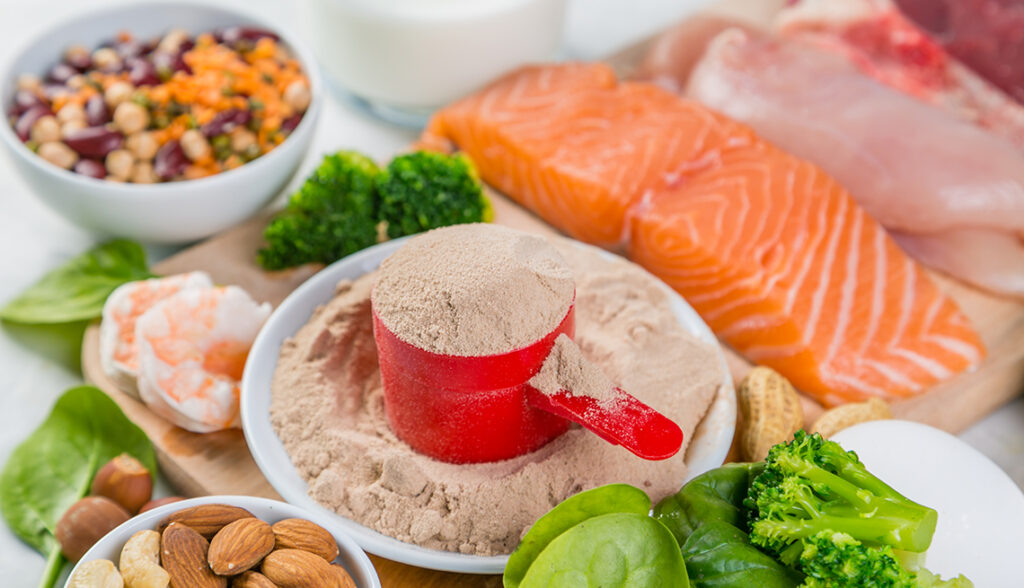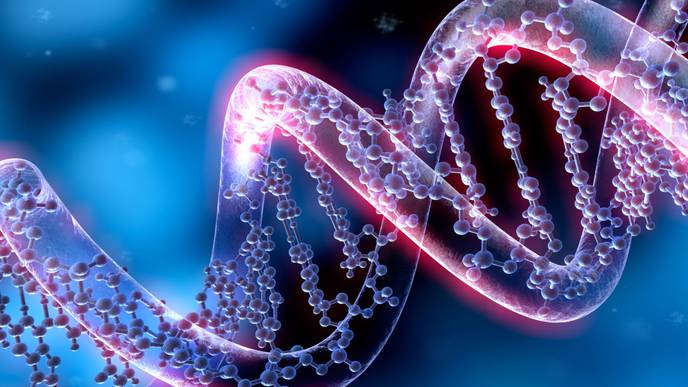The Role of Nutrition in Men’s Health and Vitality

Table of Contents
The Importance of a Balanced Diet for Men’s Health and Vitality

A balanced diet plays a crucial role in men’s health and vitality. It is not just about eating a variety of foods, but also about consuming them in the right quantities to meet our nutritional needs. When we provide our bodies with the right combination of nutrients, we promote optimal functioning, energy levels, and overall well-being.
One of the key benefits of a balanced diet is its ability to support men’s physical and mental health. Consuming a wide range of fruits, vegetables, whole grains, lean proteins, and healthy fats can help reduce the risk of chronic diseases such as heart disease, diabetes, and certain cancers. These foods are rich in essential vitamins, minerals, antioxidants, and phytochemicals that have been shown to have protective effects on our health.
Additionally, a balanced diet can have a positive impact on men’s energy levels and vitality. By providing our bodies with the right amount of carbohydrates, proteins, and healthy fats, we fuel our cells and provide them with the necessary building blocks for energy production. This not only helps us feel more energized throughout the day but also supports muscle growth, maintenance, and repair.
In conclusion, adopting a balanced diet is essential for men to achieve and maintain optimal health and vitality. By focusing on nutrient-rich foods and avoiding excessive consumption of processed and unhealthy options, men can significantly improve their overall well-being and enjoy a higher quality of life. However, it is always important to consult with a healthcare professional or a registered dietitian before making any significant changes to your diet.
Key Nutrients for Optimal Men’s Health and Vitality

A balanced diet is essential for optimal men’s health and vitality. Ensuring that you are consuming the right key nutrients can have a significant impact on your overall well-being. From supporting muscle growth and repair to boosting energy levels and promoting a healthy heart, the right combination of nutrients is vital.
Protein is a crucial nutrient for men’s nutrition. It is the building block of muscles and plays a vital role in repairing and rebuilding body tissues. Including lean sources of protein such as chicken, fish, tofu, and beans in your diet can help maintain muscle mass and promote healthy weight management. Aim for around 20-30 grams of protein per meal to optimize muscle protein synthesis and support overall vitality.
Additionally, getting enough vitamins and minerals is essential for men’s well-being. For instance, vitamins C, E, and selenium act as antioxidants and can help protect the body against free radicals, reducing the risk of chronic illnesses such as heart disease and cancer. Minerals like magnesium and zinc are important for immune function, energy production, and hormone balance. Incorporating a variety of fruits, vegetables, whole grains, and nuts into your diet can provide a wide range of essential vitamins and minerals to support your overall health and vitality.
In conclusion, ensuring that you consume the right key nutrients is crucial for optimal men’s health and vitality. Prioritizing protein, vitamins, and minerals in your diet can support muscle growth, energy levels, heart health, and overall well-being. Remember to consult a healthcare professional or a registered dietitian to get personalized advice and guidance on your specific nutritional needs.
Understanding the Role of Protein in Men’s Nutrition

Protein plays a crucial role in men’s nutrition, serving as the building blocks for muscles, tissues, and enzymes that are essential for overall health and vitality. Adequate protein intake is particularly important for men who engage in physical activities or strength training, as it supports muscle repair and growth.
According to the Dietary Reference Intakes (DRIs) recommended by the Institute of Medicine, adult men should consume approximately 56 grams of protein per day. However, the actual protein needs may vary depending on factors such as age, body weight, and activity level. For instance, athletes or individuals with intense workout routines may require higher protein intake to meet the demands of their active lifestyles.
Including high-quality sources of protein in one’s diet, such as lean meats, poultry, fish, eggs, dairy products, legumes, and tofu, can help men meet their daily protein needs. These foods not only provide essential amino acids but also supply other vital nutrients such as vitamins, minerals, and healthy fats. Moreover, incorporating a variety of protein sources into meals and snacks ensures a diverse nutrient profile and enhances the overall quality of men’s diets.
The Essential Vitamins and Minerals for Men’s Well-being
Vitamins and minerals play a crucial role in promoting men’s overall well-being. These micronutrients are essential for various bodily functions, including metabolism, immune system support, and maintenance of healthy tissues. Inadequate intake of vitamins and minerals can lead to nutrient deficiencies, which may have detrimental effects on men’s health.
One essential vitamin for men is vitamin D. Known as the “sunshine vitamin,” it plays a pivotal role in calcium absorption, which is crucial for maintaining strong bones and teeth. Research has also indicated that vitamin D may be important for testosterone production and reproductive health in men.
Another vital mineral that men should ensure they get enough of is zinc. This mineral is involved in numerous enzymatic reactions in the body, including those that support immune function, protein synthesis, and DNA production. Moreover, zinc has been linked to testosterone production and improved sperm quality.
To ensure adequate intake of vitamins and minerals, men should strive for a balanced diet that incorporates a variety of nutrient-dense foods. It is also advisable to consult with a healthcare professional or a registered dietitian to assess individual nutrient needs and consider appropriate supplementation if required. By paying attention to these essential micronutrients, men can take proactive steps towards optimizing their overall well-being and vitality.
Here’s a table-format discussion on essential vitamins and minerals for men’s well-being:
| Nutrient | Role in Men’s Health | Food Sources |
|---|---|---|
| Vitamin D | Supports bone health, immune function, and testosterone levels. | Fatty fish (salmon, tuna), fortified foods (milk, orange juice), sunlight exposure |
| Vitamin B12 | Essential for nerve function, red blood cell production, and energy metabolism. | Meat, fish, dairy products, fortified cereals |
| Vitamin C | Acts as an antioxidant, supports immune function, and aids in collagen production for skin health. | Citrus fruits, strawberries, bell peppers |
| Vitamin E | Antioxidant properties protect cells from oxidative damage and support immune function. | Nuts (almonds, peanuts), seeds, spinach |
| Vitamin K | Necessary for blood clotting and bone health. | Leafy greens (kale, spinach), broccoli |
| Magnesium | Supports muscle and nerve function, bone health, and regulates blood pressure and blood sugar levels. | Nuts, seeds, whole grains, leafy greens |
| Zinc | Essential for immune function, wound healing, testosterone production, and sperm health. | Oysters, red meat, poultry, beans |
| Calcium | Vital for bone health, muscle function, nerve transmission, and blood clotting. | Dairy products, leafy greens, fortified foods |
| Selenium | Acts as an antioxidant, supports thyroid function, and may reduce the risk of certain cancers. | Brazil nuts, seafood, poultry |
| Omega-3 fatty acids | Promote heart health, reduce inflammation, support brain function, and may improve mood. | Fatty fish (salmon, mackerel), flaxseeds, walnuts |
The Impact of Antioxidants in Promoting Men’s Health
Antioxidants play a pivotal role in promoting men’s health by protecting the body against harmful molecules called free radicals. These unstable molecules can damage cells and contribute to various health issues, including heart disease, cancer, and aging. By neutralizing free radicals, antioxidants help reduce oxidative stress and inflammation, two key factors associated with many chronic diseases.
One major benefit of antioxidants is their potential to support a healthy heart. Oxidative stress can increase the risk of developing heart disease by promoting the buildup of plaque in the arteries. However, antioxidants such as vitamin C and vitamin E can help reduce the oxidation of cholesterol, lowering the risk of plaque formation and supporting cardiovascular health. Studies have also shown that antioxidants, particularly those found in fruits and vegetables, are linked to a reduced risk of heart disease and stroke. Incorporating a variety of antioxidant-rich foods into your diet, such as berries, leafy greens, and nuts, can thus contribute to a healthier heart.
Moreover, antioxidants are known for their potential to help combat the aging process. Free radicals can damage collagen, a protein that gives the skin its elasticity and firmness, leading to the formation of wrinkles and fine lines. By neutralizing free radicals, antioxidants can help slow down the signs of aging, promoting healthier, more youthful-looking skin. In addition, they may also protect against age-related macular degeneration, a leading cause of vision loss in older adults.
While antioxidants offer numerous health benefits, it’s important to note that no single antioxidant can provide all the necessary protection. Instead, a combination of different antioxidants is required for optimal health benefits. Thus, it’s advisable to consume a diverse and balanced diet that includes a variety of fruits, vegetables, nuts, seeds, and whole grains, as they are all excellent sources of different antioxidants.
In conclusion, incorporating antioxidants into your diet can have a positive impact on men’s health by reducing oxidative stress, supporting heart health, and slowing down the aging process. By consuming a wide range of antioxidant-rich foods, men can enhance their overall well-being and vitality.
The Power of Omega-3 Fatty Acids in Boosting Men’s Vitality
Omega-3 fatty acids are essential nutrients that play a crucial role in men’s vitality and overall health. These fatty acids are a type of polyunsaturated fat that cannot be produced by the body and must be obtained through diet or supplementation. Omega-3 fatty acids are primarily found in fatty fish, such as salmon, mackerel, and sardines, as well as in certain plant-based sources like flaxseeds, chia seeds, and walnuts.
One of the key benefits of omega-3 fatty acids is their ability to support heart health. Research has shown that omega-3s can help reduce the risk of cardiovascular disease by lowering blood pressure, triglyceride levels, and inflammation in the body. In fact, studies have demonstrated that individuals who consume a higher intake of omega-3 fatty acids have a lower incidence of heart disease and are less likely to experience heart attacks or strokes. Additionally, omega-3s have been shown to improve cholesterol levels by increasing the levels of “good” HDL cholesterol and decreasing levels of “bad” LDL cholesterol.
But the benefits of omega-3 fatty acids don’t stop at heart health. These essential fats have also been linked to improved brain function and mental well-being. Research suggests that omega-3s play a vital role in maintaining optimal cognitive function and reducing the risk of age-related cognitive decline, such as Alzheimer’s disease. Some studies have even suggested that omega-3s may help alleviate symptoms of depression and anxiety, although more research is needed to fully understand this relationship.
In conclusion, incorporating omega-3 fatty acids into the diet is not only beneficial for men’s heart health but also for their overall vitality and well-being. Whether through fatty fish or plant-based sources, ensuring an adequate intake of these essential fats can provide a wide range of health benefits, from reducing cardiovascular risks to supporting brain function. So, why not add some omega-3-rich foods to your plate and give your vitality a boost?
Carbohydrates: Fueling Men’s Energy and Performance
Carbohydrates play a crucial role in fueling men’s energy and enhancing their performance. As the primary source of energy for the body, carbohydrates are converted into glucose, which is then used by cells to produce ATP, the energy currency of our cells. Incorporating carbohydrates into a well-balanced diet can provide men with the necessary energy to power through their daily activities and support their physical endurance during exercise or sports.
It’s important to understand that not all carbohydrates are created equal. While simple carbohydrates, such as those found in sugary treats and refined grains, provide a quick burst of energy, they are often accompanied by a rapid spike in blood sugar levels, followed by a crash. On the other hand, complex carbohydrates, such as those found in whole grains, legumes, fruits, and vegetables, provide a steady supply of energy due to their slower digestion and absorption rates. These complex carbohydrates also come packed with essential nutrients, including fiber, vitamins, and minerals, which are vital for overall health and well-being.
Incorporating a variety of complex carbohydrates into your diet can not only fuel your energy levels but also optimize your performance. Whole grains like quinoa and brown rice, along with fiber-rich fruits and vegetables, can provide sustained energy throughout the day. Pairing carbohydrates with quality proteins and healthy fats can further enhance their benefits, as these macronutrients work synergistically to support muscle growth, repair, and recovery.
When it comes to carbohydrate intake, it’s crucial to consider individual needs and activity levels. Engaging in regular physical activity or intense workouts may require a higher carbohydrate intake compared to a sedentary lifestyle. However, it’s equally important to choose carbohydrates wisely and avoid excessive consumption, which can lead to weight gain and other health concerns. Consulting with a registered dietitian or healthcare professional can provide personalized recommendations based on your specific goals and health status.
In conclusion, carbohydrates are an essential component of a nutritious diet and contribute significantly to men’s energy and performance. Selecting complex carbohydrates, incorporating them into a well-balanced meal plan, and considering individual needs can optimize the benefits of carbohydrates and support overall health and vitality. By fueling your body with the right carbohydrates, you can power through your daily activities and unleash your full potential.
The Role of Fiber in Supporting Men’s Digestive Health
Fiber plays a crucial role in supporting men’s digestive health. It is a type of carbohydrate that our bodies cannot digest, but it plays a vital role in keeping our digestive system functioning properly. Fiber adds bulk to the stool, making it easier to pass through the intestines and preventing constipation. It also helps maintain a healthy balance of bacteria in the gut, which is important for overall digestive health.
In addition to aiding in digestion, fiber has numerous other health benefits. It can help regulate blood sugar levels, lower cholesterol levels, and promote a healthy weight. Research has also shown that a high-fiber diet may reduce the risk of developing certain conditions, such as heart disease, stroke, and certain types of cancer. It is recommended that men consume between 25-38 grams of fiber per day, depending on age and calorie needs. Good sources of fiber include fruits, vegetables, whole grains, legumes, and nuts. By incorporating these foods into their diet, men can support their digestive health and overall well-being.
Hydration: Essential for Men’s Overall Well-being
Staying properly hydrated is essential for men’s overall well-being. Water is a vital component of our bodies, comprising about 60% of our total body weight. It plays a crucial role in numerous physiological functions, including maintaining body temperature, lubricating joints, transporting nutrients, and aiding in digestion.
Dehydration, on the other hand, can have detrimental effects on men’s health. Even mild dehydration can lead to symptoms such as fatigue, dizziness, headaches, and decreased cognitive function. In more severe cases, dehydration can result in muscle cramps, rapid heart rate, and even heatstroke. It is important to note that men have higher water requirements than women due to their larger body size and higher muscle mass.
To ensure optimal hydration, men should aim to consume an adequate amount of water throughout the day. The amount of water needed varies depending on factors such as age, activity level, climate, and overall health. As a general guideline, men should aim to drink at least 3.7 liters (about 13 cups) of water daily. This can be achieved through a combination of water intake from beverages and moisture-rich foods, such as fruits and vegetables.
It’s also important to be mindful of signs of dehydration, especially during physical activity or in hot weather conditions. Thirst is often a late sign of dehydration, so it’s crucial to drink water regularly even before feeling thirsty. Additionally, consuming electrolyte-rich beverages, such as sports drinks or coconut water, can help replenish lost electrolytes during strenuous exercise or prolonged sweating.
In conclusion, proper hydration is essential for men’s overall well-being. By maintaining adequate water intake, men can support their physiological functions, enhance cognitive performance, and prevent the adverse effects of dehydration. Remember to listen to your body’s signals and drink water regularly to ensure optimal hydration and promote your overall health and vitality.
The Connection Between Men’s Nutrition and Testosterone Levels
Testosterone is a vital hormone that plays a crucial role in men’s overall well-being. It impacts various aspects of their health, including muscle mass, bone density, libido, and even mood. It is no surprise, then, that nutrition plays a significant role in maintaining healthy testosterone levels.
One essential nutrient that supports testosterone production is zinc. Studies have shown that zinc deficiency can lead to lower testosterone levels in men, while ensuring an adequate intake of this mineral can help maintain optimal hormone levels. Good sources of zinc include oysters, lean meats, poultry, and fortified cereals. Additionally, vitamin D is known to have a positive correlation with testosterone levels. Exposure to sunlight and consuming foods such as fatty fish, fortified dairy products, and egg yolks can help boost vitamin D levels in the body.
It’s important to note that various factors can influence testosterone levels, such as age, stress, and underlying medical conditions. However, incorporating a well-balanced diet rich in nutrients like zinc and vitamin D can contribute to overall hormonal health. Consulting with a healthcare professional or a registered dietitian can provide personalized guidance on optimizing nutrition for enhancing testosterone levels. By prioritizing proper nutrition, men can take a proactive approach to support their well-being and vitality.
Nutrition Strategies for Maintaining a Healthy Weight in Men
Maintaining a healthy weight is crucial for men, as it not only contributes to overall well-being but also reduces the risk of various chronic diseases. To achieve and sustain a healthy weight, it is important to adopt effective nutrition strategies that promote gradual and sustainable weight loss, while also providing the necessary nutrients for optimal health.
One key strategy for weight management in men is to focus on portion control. Overeating, especially foods high in calories, can lead to weight gain. By practicing portion control and being mindful of the serving sizes, men can better manage their calorie intake and prevent excessive weight gain. Eating slowly and paying attention to hunger and fullness cues can also help in controlling portion sizes and preventing overeating.
In addition to portion control, incorporating a well-balanced diet is essential for weight management in men. Consuming a variety of nutrient-dense foods such as fruits, vegetables, whole grains, lean proteins, and healthy fats can provide the body with essential vitamins, minerals, and antioxidants while keeping calorie intake in check. Restrictive diets that eliminate entire food groups are not sustainable in the long run and may lead to nutrient deficiencies. Instead, focusing on moderation and incorporating a wide range of nutritious foods can promote weight loss and support overall health and vitality.
The Influence of Nutrition on Men’s Heart Health
The influence of nutrition on men’s heart health cannot be overstated. A balanced diet, rich in essential nutrients and low in unhealthy fats, plays a crucial role in maintaining a healthy heart. Research has shown that certain dietary choices can significantly impact heart health outcomes for men.
One key factor to consider is the consumption of saturated and trans fats. These fats, commonly found in processed foods, fried foods, and fatty meats, have been linked to an increased risk of heart disease in men. In contrast, a diet rich in unsaturated fats, such as those found in nuts, seeds, and fatty fish, has been associated with a lower risk of heart disease.
Moreover, incorporating foods high in fiber into one’s diet has been shown to have a positive impact on heart health. Studies have found that increased intake of dietary fiber can lower cholesterol levels and reduce the risk of heart disease. Good sources of fiber include whole grains, fruits, vegetables, and legumes.
It is also important to note the role of key nutrients, such as omega-3 fatty acids, in promoting heart health for men. These healthy fats, commonly found in fish, flaxseeds, and walnuts, have been shown to reduce inflammation, lower blood pressure, and decrease the risk of heart disease.
Overall, making mindful dietary choices can have a profound impact on men’s heart health. By consuming a balanced diet that includes plenty of fruits, vegetables, whole grains, lean proteins, and healthy fats, men can significantly reduce their risk of heart disease and enhance their overall well-being.
Bone Health: How Nutrition Affects Men’s Skeletal System
When it comes to men’s skeletal health, nutrition plays a crucial role. The food we consume provides our bodies with the necessary nutrients to build and maintain strong bones. Calcium is one of the key nutrients that men should focus on for optimal bone health. It is well-known that calcium is important for the development and maintenance of healthy bones, but did you know that it is also essential for nerve function and muscle contractions? Incorporating calcium-rich foods into your diet, such as dairy products, leafy greens, and fortified plant-based milks, can help support your skeletal system and overall well-being.
In addition to calcium, vitamin D is another essential nutrient for bone health. Vitamin D plays a vital role in the absorption of calcium, ensuring that your body can utilize this mineral effectively. Sunlight is a natural source of vitamin D, but it can also be found in fatty fish, fortified dairy products, and egg yolks. However, it’s worth noting that it can be challenging for men to obtain adequate levels of vitamin D through diet alone, especially for those who live in areas with limited sunlight. In such cases, supplementation may be necessary to meet the recommended daily intake. Taking these steps to prioritize bone health through proper nutrition can help prevent osteoporosis and other bone-related conditions, promoting a stronger and more resilient skeletal system.
The Role of Nutrition in Supporting Men’s Mental Health
Men’s mental health is a topic that deserves more attention and discussion. While there are various factors that can contribute to mental health issues, it is important to recognize that nutrition plays a crucial role in supporting men’s mental well-being. The food we consume not only fuels our physical body but also has a significant impact on our brain health and overall mental state.
Research suggests that there are certain nutrients that can positively influence men’s mental health. For example, omega-3 fatty acids, found in fatty fish such as salmon and tuna, have been shown to reduce symptoms of depression and anxiety. These healthy fats are essential for proper brain function and can help regulate neurotransmitters, which are responsible for mood regulation. Incorporating foods rich in omega-3s into your diet can be a simple yet effective way to support your mental health.
In addition to omega-3s, other nutrients that play a role in men’s mental health include B vitamins, magnesium, and antioxidant-rich foods. B vitamins, found in foods like leafy greens, whole grains, and lean meats, are important for neurotransmitter synthesis and can help alleviate symptoms of depression and anxiety. Magnesium, found in nuts, seeds, and dark chocolate, is involved in over 300 enzymatic reactions in the body and has been linked to a decreased risk of depression. Antioxidants, found in colorful fruits and vegetables, help protect the brain from oxidative stress and may reduce the risk of cognitive decline.
While nutrition alone may not be the sole solution for mental health issues, it is undoubtedly an important piece of the puzzle. Adopting a well-balanced diet that includes nutrient-dense foods can provide the essential building blocks for optimal brain function and support men’s mental well-being. However, it is important to remember that each person is unique, and it is always advisable to seek professional help if struggling with mental health concerns.
Optimizing Men’s Performance through Pre and Post-Workout Nutrition
A well-structured pre and post-workout nutrition plan is essential for men looking to optimize their performance and achieve their fitness goals. The food and nutrients you consume before and after a workout can have a significant impact on your energy levels, endurance, muscle recovery, and overall athletic performance.
Prior to a workout, it is crucial to fuel your body with the right combination of macronutrients, including carbohydrates, proteins, and fats. Carbohydrates serve as the primary source of fuel for your muscles, providing the energy needed for intense physical activity. Opt for complex carbohydrates such as whole grains, fruits, and vegetables, which provide a steady release of energy and help sustain your workout session.
Protein intake before a workout is essential for muscle repair and growth. Including a source of lean protein, such as chicken, fish, or tofu, in your pre-workout meal or snack can help promote muscle protein synthesis and enhance muscle recovery. Additionally, adding a small amount of healthy fats, such as avocados or nuts, can help improve satiety and provide a source of long-lasting energy during your workout.
After your workout, it is important to replenish your body with the necessary nutrients to aid in muscle tissue repair and recovery. Consuming a combination of carbohydrates and protein within the first hour post-workout can enhance glycogen synthesis and stimulate muscle protein synthesis. Aim for a carbohydrate-protein ratio of 3:1 or 4:1 to maximize recovery benefits. An easy and convenient option could be a protein shake or a meal that includes lean protein and complex carbohydrates.
By optimizing your pre and post-workout nutrition, you can enhance your performance, reduce muscle soreness, and accelerate your progress towards achieving your fitness goals. However, it is essential to remember that nutrition should be personalized to individual needs and goals. Consulting with a registered dietitian or a sports nutritionist can help tailor a nutrition plan specifically for you, ensuring you are providing your body with the fuel it needs to excel in your fitness journey. In the next section, we will explore the impact of nutrition on testosterone levels in men and how dietary choices can support optimal hormonal balance.
What is the ideal time to consume a pre-workout meal?
The ideal time to consume a pre-workout meal is around 1-2 hours before your workout. This allows enough time for digestion and absorption of nutrients to provide energy during exercise.
Can men benefit from consuming protein supplements before and after workouts?
Yes, consuming protein supplements before and after workouts can be beneficial for men. They help in muscle repair and growth, enhance recovery, and improve overall exercise performance.
Are there any specific vitamins and minerals that are particularly important for men’s well-being?
Yes, some vitamins and minerals that are particularly important for men’s well-being include vitamin D, vitamin B12, magnesium, and zinc. These nutrients play vital roles in various bodily functions, such as hormone regulation, immune function, and energy metabolism.
How can antioxidants promote men’s health?
Antioxidants help protect the body’s cells from damage caused by harmful free radicals. By reducing oxidative stress, antioxidants promote men’s health by supporting a healthy immune system, reducing the risk of chronic diseases, and improving overall well-being.
Can omega-3 fatty acids benefit men’s vitality?
Yes, omega-3 fatty acids have been shown to have numerous benefits for men’s vitality. They help reduce inflammation, support heart health, improve cognitive function, and may even enhance mood and mental well-being.
What role do carbohydrates play in fueling men’s energy and performance?
Carbohydrates are the primary source of energy for the body. Consuming an adequate amount of carbohydrates before a workout provides the necessary fuel for physical activity, helping to optimize energy levels and performance.
How does fiber support men’s digestive health?
Fiber promotes regular bowel movements, prevents constipation, and supports a healthy digestive system. It also helps maintain healthy cholesterol levels and can aid in weight management.
How much water should men consume to stay adequately hydrated?
Men should aim to consume at least 3.7 liters (or about 13 cups) of water per day to stay adequately hydrated. However, individual water needs may vary depending on factors such as activity level and climate.
Is there a connection between men’s nutrition and testosterone levels?
Yes, proper nutrition plays a crucial role in maintaining healthy testosterone levels in men. Consuming adequate protein, healthy fats, and essential vitamins and minerals supports testosterone production and overall hormonal balance.
What nutrition strategies can help men maintain a healthy weight?
Some nutrition strategies that can help men maintain a healthy weight include portion control, consuming a balanced diet with plenty of fruits and vegetables, reducing processed food intake, and engaging in regular physical activity.
How does nutrition influence men’s heart health?
Nutrition plays a significant role in men’s heart health. A diet rich in fruits, vegetables, whole grains, lean proteins, and healthy fats can help lower the risk of heart disease by reducing cholesterol levels, blood pressure, and inflammation.
Can nutrition affect men’s bone health?
Yes, proper nutrition is essential for men’s bone health. Consuming adequate amounts of calcium, vitamin D, magnesium, and other bone-supporting nutrients can help maintain strong bones and reduce the risk of osteoporosis and fractures.
What is the role of nutrition in supporting men’s mental health?
Nutrition plays a role in supporting men’s mental health by providing the necessary nutrients for optimal brain function and neurotransmitter production. A balanced diet rich in omega-3 fatty acids, B vitamins, antioxidants, and other essential nutrients can contribute to improved mood and overall mental well-being.
How can pre and post-workout nutrition optimize men’s performance?
Pre and post-workout nutrition provides the body with the necessary fuel and nutrients to enhance exercise performance, promote muscle growth and repair, and aid in recovery. By optimizing nutrient intake before and after workouts, men can maximize their performance and achieve their fitness goals.






